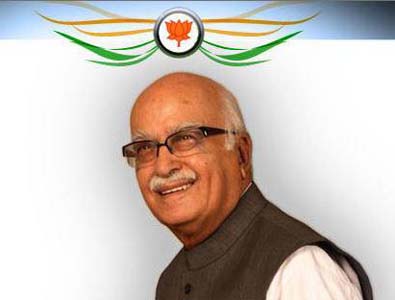Nationalist Hindu leader Advani eyes India's top post
 New Delhi - Lal Krishna Advani, who fled to India from Pakistan as a refugee and emerged as the country's top Hindu nationalist leader, has brought about a marked transformation in India's political scene over the past two decades.
New Delhi - Lal Krishna Advani, who fled to India from Pakistan as a refugee and emerged as the country's top Hindu nationalist leader, has brought about a marked transformation in India's political scene over the past two decades.
The 81-year-old leader of India's main opposition Bharatiya Janata Party, Advani has helmed the rise of the BJP largely on the basis of Hindu-Muslim tensions and a campaign to have a Hindu temple dedicated to the Hindu god Ram built on the site of a demolished mosque in the northern city of Ayodhya.
In recent years, however, Advani, who is among India's most versatile politicians, has attempted an image makeover from hardliner to moderate.
He has also tried to connect with young voters ahead of this year's election, carrying out a vigorous internet campaign and writing a blog. The octogenarian recently tried out some weights at a gym in a tour aimed at youth.
A former journalist, Advani, who has been BJP president three times and a deputy prime minister, has built a reputation as an honest and strict administrator.
Born in Karachi on November 8, 1927, in what is now Pakistan, Advani started his political career in 1942 when he joined Rashtriya Swayamsewak Sangh, BJP's ideological predecessor. He later joined the Bharatiya Jana Sangh party and was a member of Parliament from 1970 to 1975.
Advani was instrumental in making the BJP a political force, taking it from two parliamentary seats in 1984 to forming a government 15 years later. His campaign on the Ram temple catapulted his political career as well as his party's.
Advani travelled across India to muster support for the temple, a crusade that ended with the medieval mosque being destroyed in a frenzied attack by Hindu zealots in 1992.
The demolition triggered massive riots between Hindus and Muslims that left more than 2,000 people dead. Advani has denied allegations that he incited the mobs as the temple issue is being decided by the courts.
Advani's hardliner image was not easily acceptable to constituents during the formation of the BJP-led National Democratic Alliance government after 1996 elections, and the Ayodhya issue led to his associate, Atal Behari Vajpayee, becoming the face of the BJP.
He served as home minister in the Vajpayee cabinet and later became a deputy prime minister until the alliance's defeat in the last elections in May 2004.
Although Advani is criticized for communal polarization in India, BJP activists claim that he put India on a high-growth trajectory and restructured India's relations in the post-Cold War era, which saw close ties develop with the United States and Israel.
Advani was the leader of the opposition in Parliament and has held centre stage in the party as Vajpayee's health deteriorated.
He has tried to distance himself from his hawkish image since 2005 when he praised Pakistan's founding father, Mohammed Ali Jinnah, and described him as secular, sparking a furore in India.
Political observers said Advani has been trying to cultivate an image as a senior statesman to widen his electoral appeal in what is likely to prove his final attempt for India's top job.
But with the BJP asserting its agenda on the temple, the party can hardly expect support from Muslims, who account for 13 per cent of India's 1.17 billion people.
Lately, the BJP has also been faced with internal discord among its leaders as well as problems with its coalition partners, including a breakup with a powerful ally in the eastern state of Orissa.
Lacking his predecessor's skills in keeping political alliances together, as well as fractious politics inside his own camp, Advani could fall short in his quest for the coveted post. (dpa)